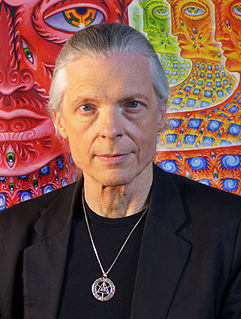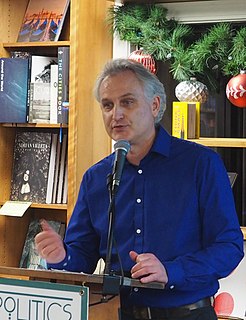A Quote by George Lakoff
The mind is inherently embodied.
Thought is mostly unconscious.
Abstract concepts are largely metaphorical.
Quote Topics
Related Quotes
The child's mind is not the type of mind we adults possess. If we call our type of mind the conscious type, that of the child is an unconscious mind. Now an unconscious mind does not mean an inferior mind. An unconscious mind can be full of intelligence. One will find this type of intelligence in every being, and every insect has it.
You have to learn to trust - and listen to - your unconscious mind. If you pose the question to your unconscious "is this person a friend or a foe" - safe or a threat - your unconscious mind is hard-wired to assess that brilliantly for you. It's just that we're not very good at paying attention to what our unconscious minds are telling us.
It is only through the psyche that we can establish that God acts upon us, but we are unable to distinguish whether these actions emanate from God or from the unconscious. We cannot tell whether God and the unconscious are two different entities. Both are border-line concepts for transcendental contents. But empirically it can be established, with a sufficient degree of probability, that there is in the unconscious an archetype of wholeness.
Big ideas come from the unconscious. This is true in art, in science, and in advertising. But your unconscious has to be well informed, or your idea will be irrelevant. Stuff your conscious mind with information, then unhook your rational thought process. You can help this process by going for a long walk, or taking a hot bath, or drinking half a pint of claret. Suddenly, if the telephone line from your unconscious is open, a big idea wells up within you.
In the unawakened state you don't use thought, but thought uses you. You are, one could almost say, possessed by thought, which is the collective conditioning of the human mind that goes back many thousands of years. You don't see anything as it is, but distorted and reduced by mental labels, concepts, judgments, opinions and reactive patterns.





































